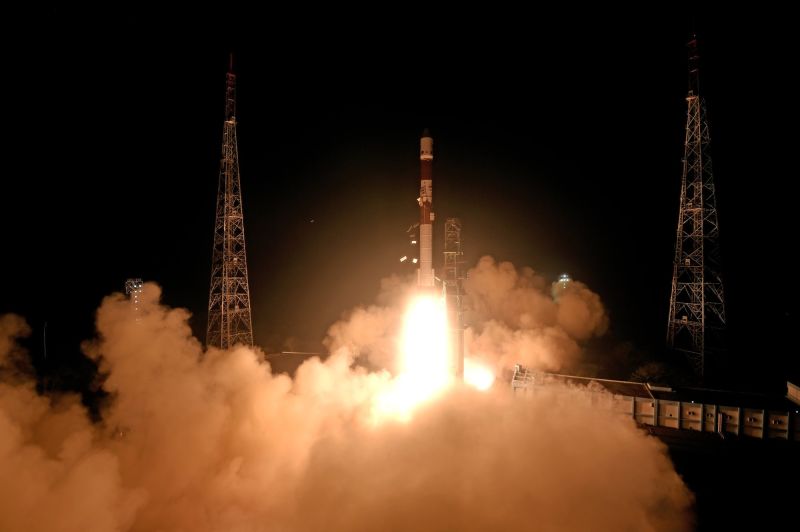India launched its first space docking mission on Monday, on an Indian-made rocket, in an attempt to become the fourth country to achieve the advanced technological feat.
The mission, called Space Docking Experiment (SpaDeX), lifted off from the Satish Dhawan Space Centre in Andhra Pradesh state at 1630 GMT aboard the Indian Space Research Organisation’s (ISRO) “workhorse” PSLV rocket. After around 15 minutes, the mission director called the launch successful after the spacecraft reached an altitude of around 470 kilometers (292 miles).
The mission is seen as pivotal for future space endeavours, including satellite servicing and the operation of the country’s planned space station.
In-space docking technology is crucial when multiple rocket launches are required to achieve shared mission objectives.
The Indian mission involves deploying two small spacecraft, each weighing about 220 kilograms, into a 470-km circular orbit. It will also demonstrate the transfer of electric power between the docked spacecraft, a capability vital for applications such as in-space robotics, composite spacecraft control and payload operations following undocking.
Each satellite carries advanced payloads, including an imaging system and a radiation-monitoring device designed to measure electron and proton radiation levels in space, providing critical data for future human spaceflight missions.
ISRO Chairman S. Somanath said the actual testing of the docking technology could take place in about a week’s time and indicated a nominal date of around January 7.
“The rocket has placed the satellites in the right orbit,” he said.
A successful demonstration would place India alongside the United States, Russia and China as the only countries to have developed and tested this capability.
In a first for India, the rocket and the satellites were integrated and tested at a private company called Ananth Technologies, rather than at a government body.
“Display of this technology is not just about being able to join a rare group of countries who own it, it also opens up the market for ISRO to be the launch partner for various global missions that need docking facilities or assembly in space,” said astrophysicist Somak Raychaudhary of Ashoka University.
The fourth stage of the PSLV, which usually turns into space debris, has been converted into an active un-crewed space laboratory. The last stage of the rocket has been repurposed to become an orbital laboratory and will be used for various experiments.
“The PSLV Orbital Experiment Module (POEM) is a practical solution deployed by ISRO that allows Indian start-ups, academic institutions, and research organizations to test their space technologies without the need to launch entire satellites. By making this platform accessible, we are reducing entry barriers and enabling a wider range of entities to contribute to the space sector,” said Pawan Goenka, chairman of India’s space regulatory body.


